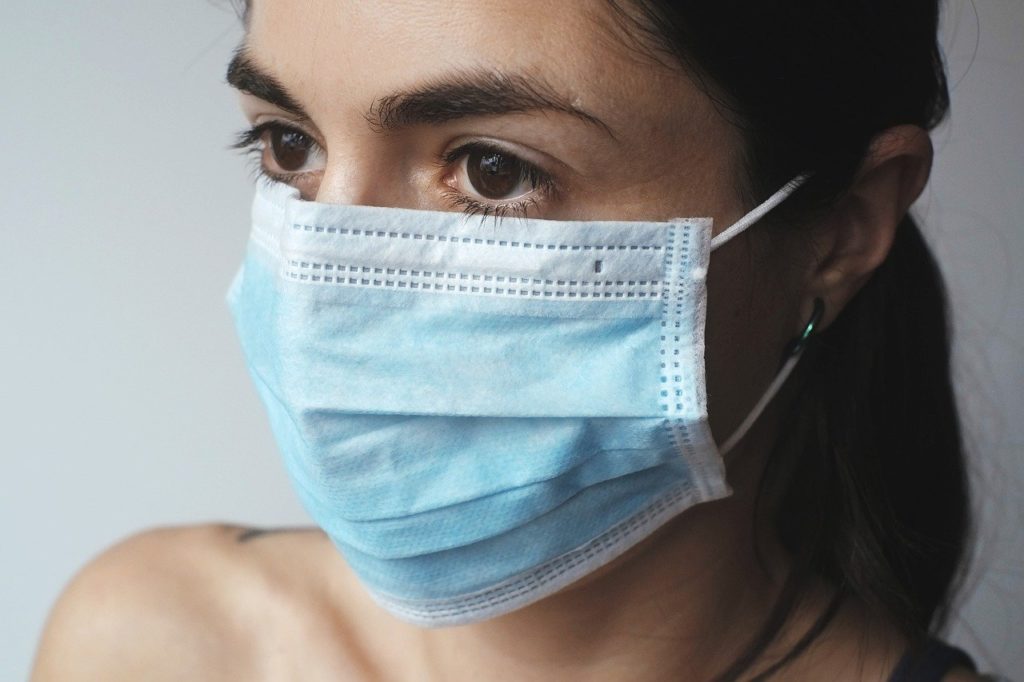The General Directorate of Health today admitted the use of masks by all people who remain indoors with several people, as an additional protection measure to social distance, hand hygiene and respiratory etiquette.
The conditions for the use of the various types of masks were published today in an information, in which the Directorate-General for Health (DGS) recalls previously issued guidelines.
People over 65 years of age, with chronic illnesses and immunosuppressive states, should wear surgical masks whenever they leave the house, according to a DGS guideline.
In addition to all healthcare professionals, people with respiratory symptoms or those who enter and circulate in healthcare institutions should also wear these masks.
Invoking the Principle of Precaution in Public Health, the DGS claims today to consider "the use of masks by all people who remain indoors with multiple people, as an additional measure of protection to social distance, hand hygiene and respiratory label”.
It reiterates that the effectiveness of the widespread use of masks by the community in preventing infection by the new coronavirus "is not proven". He admits, however, that, in the face of the emergence of a new disease, "the evidence evolves at every moment and is affirmed in a collaborative model of experiences, before the emergence of more rigorous scientific evidence".
As Health Minister Marta Temido mentioned at today's press conference, the use of surgical masks and other personal protective equipment is recommended to some professional groups: security and military forces, firefighters, distributors of essential goods. home, workers in social solidarity institutions, homes and an integrated continuous care network, funeral directors and professionals who provide care to the public, where social distance is not guaranteed.
The DGS emphasizes that the use of masks by the population "implies knowledge and mastery of the techniques of placement, use and removal", and that their use "cannot, in any way, lead to the neglect of fundamental measures such as social distancing and hand hygiene”.
According to the DGS, the use of masks by the population is “an act of altruism”, since those who wear them “are no longer protected”, but rather contributes to the protection of other people.
It also recognizes that the use of masks by the population cannot “decrease the sustainability of access to masks by patients and health professionals”, who constitute the priority groups for the use of surgical masks.
"According to ECDC, there is no direct scientific evidence that allows issuing a recommendation for or against the use of non-surgical or community masks by the population", reads the document signed by the general director of health, Graça Freitas.
The health minister indicated today that non-surgical masks can be used by the population in closed spaces and with a large number of people, such as supermarkets and public transport.
"According to the basic principle of precaution in public health and given the absence of adverse effects associated with the use of a mask, its use by anyone in closed interior spaces and with a large number of people can be considered", stated Marta Temido , giving as an example supermarkets, pharmacies, shops or commercial establishments and public transport.
At the daily press conference held at the Directorate-General for Health (DGS), the minister stressed that the use of masks in the community constitutes “an additional and supplementary measure” to the existing ones, such as social distance and hand washing.
The minister had said that today a standard would be published by the DGS that complies with European rules on the use of non-surgical masks, also known as “social or community masks”.
Marta Temido stressed that the issue of masks is “completely aligned” with the European Center for Disease Control and Prevention, which on April 08th presented a series of arguments about the use of this equipment.
The minister stressed that the social masks, which can be made of cotton or other textile fabric, will be generalized to the population when the country returns to normality.
"In a context, which is not the one we are in today, because we are in a state of emergency, which calls for confinement and restriction of essential activities, but in which people can locate themselves in closed spaces, the use of said social mask”, he said.
At the daily press conference to update information on the covid-19 pandemic, Marta Temido explained that there are three types of masks: FFP respirators for healthcare professionals (models 2 and 3), surgical masks that prevent the spread of infectious agents and non-surgical or social masks.
According to the minister, surgical masks should be used by people with symptoms of covid-19 and the most vulnerable, as well as professionals from more exposed groups such as firefighters, police and workers at funeral homes and shops.
Marta Temido explained that non-surgical masks are not certified devices, do not comply with standardization and can be made of different materials, such as cotton or textiles.



















Comments